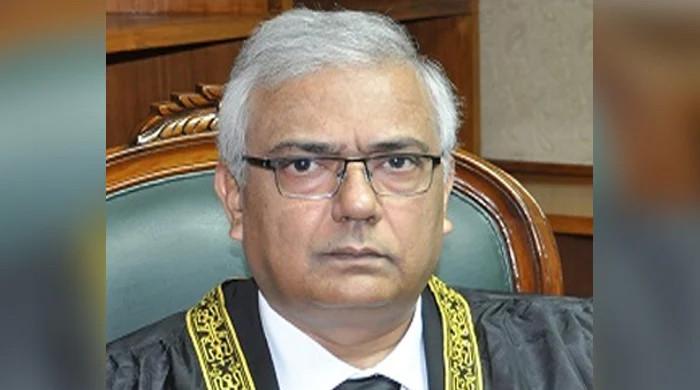
- CJ Aminuddin outlines FCC’s role in upholding Constitution.
- New website aims to boost transparency and public access: CJ.
- “FCC to approach cases with fairness, restraint, commitment.”
In his maiden message as the Federal Constitutional Court’s (FCC) top judge, Chief Justice Aminuddin Khan called the creation of the newly established court under 27th Amendment a landmark in Pakistan’s constitutional journey, “reinforcing the nation’s commitment to the rule of law”.
The FCC CJ’s statement was published on the court’s newly launched website.
CJ Aminuddin, who was appointed following the establishment of the FCC under the recent 27th Constitutional Amendment, described the institution’s mandate as “of great significance: to interpret the Constitution with clarity, independence and fidelity; to safeguard the fundamental rights guaranteed to the people; and to ensure that the constitutional order remains a source of stability, justice and balance for all institutions of the state.”
He added that the court’s work carries profound implications for the lives, liberties and aspirations of Pakistan’s citizens.
“Each matter brought before this court will be approached with an unwavering commitment to fairness and restraint, guided solely by the Constitution and the principles of justice that lie at its heart,” he said.
The chief justice also highlighted that the new website aims to enhance transparency and accessibility. It will provide the public, the Bar, and state institutions with accurate information on the FCC’s jurisdiction, procedures, and decisions.
“In an age where the effective delivery of justice is inseparable from the free flow of information, we hope that this platform will serve as a meaningful bridge between the court and the people it exists to serve,” he noted.
Justice Aminuduin expressed hope that the FCC will become “a guardian of constitutionalism and an enduring symbol of justice for generations to come.” He concluded his message by invoking guidance to fulfil duties “with wisdom, humility and unwavering commitment to the Constitution.”
Justice Aminuddin was sworn in as the first CJ of the newly formed FCC last Friday under the 27th Constitutional Amendment.
Justice Aminuddin, whose legal practice started around four decades back, was previously serving as the head of the now-dissolved constitutional bench, which was formed as a result of the 26th Constitutional Amendment last year.
The new court, which has been established as a result of the 27th Amendment, is set to have equal provincial representation. The president and the prime minister will play key roles in judicial appointments, while powers to hear constitutional cases of the Supreme Court will be transferred to the new court.
A crucial power of the Supreme Court, taking suo motu notices, has also been transferred to the FCC, which has been empowered to take suo motu notice upon petitions.
Chief Justice Yahya Afridi, who was sworn to the coveted post on October 30, 2024, still remains the top judge; however, once his tenure ends after the stipulated three years, the senior-most judge from amongst the SC and FCC judges will become the top judge.
The judicial overhaul, part of the latest amendments, not only paved the way for dissolving the Constitutional Benches but also, through the Supreme Court Practice and Procedure (Amendment) Bill 2025, transferred the authority to constitute case-hearing benches to a three-member committee headed by the Chief Justice.
The committee will comprise the chief justice of the Supreme Court, the most senior judge, and a third judge nominated by the country’s top jurist.
In the absence of any member, the chief justice may nominate another judge to serve on the committee. Decisions regarding the formation of benches by the committee will be made by a majority vote.
The retirement age of judges of the Constitutional Court will be 68 years, three years higher than that of the Supreme Court judges, who currently retire at 65.
Discover more from Brackly News
Subscribe to get the latest posts sent to your email.



